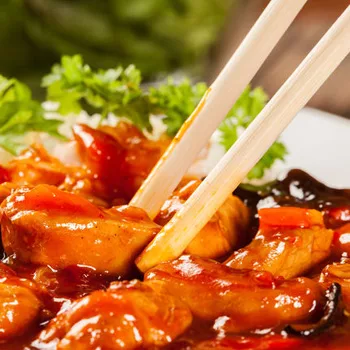China: An Overview of the New Food Safety Law

On April 24, 2015, the Standing Committee of China’s National People’s Congress revised the 2009 Food Safety Law of the People’s Republic of China (Food Safety Law). The revised law came into effect on October 1, 2015.
The revisions to the Food Safety Law are wide-ranging, imposing stricter controls and supervision on food production and management. A review of food safety practices in China is essential to ensure compliance with the new law, limiting potential exposure to regulatory enforcement and subsequent loss in profits.
On December 9, 2015, the China Food and Drug Administration (CFDA) published draft amendments to the Implementing Regulations of the Food Safety Law (Implementing Regulations) for public consultation. The draft Implementing Regulations has provided insights into how the administration intends to implement and enforce the new Food Safety Law, which contains 10 chapters with 154 articles, adding 50 new articles to the old law as well as other revisions.
Highlights of the changes are summarized below.
1. Record-keeping and registration mechanisms for food producers and importers
The primary enforcement powers for food safety used to be divided among different agencies. Since 2013, the State Council has commenced a structural adjustment for the purpose of establishing a more centralized system, with CFDA under the State Council responsible for the supervision of food production, distribution and restaurant/catering services. The centralized system is now explicitly provided under the new law.
Food producers must maintain a record system to record the supply and examination of food ingredients, food additives and food-related products. Such record must be kept for a period of 6 months after the expiration date of the relevant food products, or 2 years if the expiration date is not specified.
Food importers and importing agents must be recorded with the General Administration of Quality Supervision, Inspection and Quarantine (AQSIQ). Manufacturers of imported food products must also be registered with the AQSIQ.
2. Online food platforms
Ordering food online is now a global trend and the safety of food purchased over the internet has raised issues. Under the new law, providers of third-party online food trading platforms must review a trader’s permit and register the real identity of the trader. If a platform provider becomes aware of food safety violations, the provider must immediately stop the trader from such illegal activities and report the same to local FDAs. For serious violations, the provider must immediately stop providing the internet platform service. If a consumer suffers damages from food products purchased through an online trading platform, the consumer can demand damages from the food trader. Where the platform provider cannot provide valid contact information of the food trader, the platform provider will instead be liable to pay the damages.
3. Health foods
Health foods that contain ingredients outside the approved list of health food ingredients must be registered with CFDA. CFDA recordal is required for health foods that are imported for the first time and serve to supplement vitamins, minerals and other nutrients. Other health foods must be recorded with provincial level FDAs. The draft Implementing Regulations have proposed that importation should be conducted within 3 months of the recordal.
Consistent with existing regulations for health foods, the new law prohibits labels and instructions of health foods from referring to any preventive or therapeutic function. They should also contain the statement “this product cannot replace medicine.” Functions and ingredients of the health foods must be consistent with the contents stated on their labels and instructions. The draft Implementing Regulations have proposed that health claims must strictly follow the prescribed index of health food claims, and the language cannot be modified or combined.
To avoid possible public confusion, the draft Implementing Regulations have further proposed that sale areas of health foods be separated from sale areas of pharmaceuticals and other types of food. Under the draft Implementing Regulations, the sales areas of health foods must be clearly identified as such and the statement “this product cannot replace medicine” be prominently displayed.
4. Baby foods
A key revision under the new law is stricter regulation for baby formula food. The ingredients, food additives, formula and labels of baby formula food must be recorded with provincial level FDAs. Formulas for baby milk must be registered with CFDA. Reports and other materials showing the development process and safety of the formula must be submitted for formula registration.
Baby milk formulas that are manufactured overseas and imported to China must not be repackaged for import purposes. For manufacturers of baby milk powder, the same formula cannot be used under different brand names.
5. Genetically modified foods
The new law introduces rules on genetically modified foods and provides that packages of genetically modified foods must be labelled as such, and the information on the labels must be accurate. The draft Implementing Regulations propose that the words “non-genetically modified” cannot be used on genetically modified foods or genetically modified raw materials which have not been approved by the authorities.
6. Foods for special medical purposes
Formula foods for special medical purposes must be registered with CFDA. The product formula, production technology, labels, instructions and materials showing the safety and nutritional adequacy of the product and clinical effects of special medical use must be submitted for product registration. The new law stipulates that relevant regulations for pharmaceutical advertising apply to advertisements of foods for special medical purpose. According to the draft Implementing Regulations, advertisements of food formula providing complete nutrition for specific medical purpose will be regulated as advertisements of prescribed drugs, while advertisements of other types of food formula for special medical purpose will be regulated as advertisements of nonprescribed drugs.
7. Increased sanctions
Compared to its previous version, the new law impose harsher sanctions on food safety violations.
For food traders, engaging in the production of foods or food additives without proper permit will be subject to an administrative fine up to 20 times the products’ value. Likewise, failure to register health foods, formula foods for special medical use or baby milk formulas is subject to an administrative fine up to 20 times the products’ value and the food permit may be revoked in serious cases.
If a party provides a food trader with production or selling facility or other facilitating conditions with the knowledge that the trader is engaged in illegal production of food or food additives, that party will be subject to a fine up to RMB 100,000 and be jointly liable for damages suffered by consumers.
Punitive damages up to 10 times the products’ value are available to consumers where the food products fail to meet food safety standards, except for deficiencies in product labels and instructions if such deficiencies do not mislead consumers.
Trends
The new law is claimed to be the strictest food safety law in Chinese history. It shows the proactive attitude of the Chinese government in cracking down on food scandals that have affected the country in recent years, leading to poor consumer confidence in domestic products. CFDA and local FDAs are now granted more enforcement powers in addressing food safety issues.
The new law places more emphasis on the supervision and control of every step of food production, distribution, sale and recall. Special provisions are set out for food products which have been a focus in food safety incidents in recent years, especially health foods and infant milk formulas. Meanwhile, the new law has also taken into account new types of food trading activities, including food sold on a third-party trading platform and food imported through e-commerce channels. With respect to the latter, the draft Implementing Regulations propose that food imported through e-commerce channels are subject to the same regulations as those applicable to food products imported through traditional channels.
Conclusion
The new Food Safety Law is significant for China as its amendments and revisions will improve the quality of food products and instill public confidence in the Chinese food industry. Many of the provisions serve to clarify, consolidate and expand pre-existing food safety restrictions under specific regulations for the relevant product categories, but with more severe penalties. The new law also gears regulatory bodies with more authority, sets harsher penalties for violations and introduces more guidelines for consumer product manufacturing and production.
Andrew Sim, Esq., is a partner and Yilan Yang, Esq., is an associate in the Intellectual Property Practice at Baker & McKenzie in Beijing.
Looking for quick answers on food safety topics?
Try Ask FSM, our new smart AI search tool.
Ask FSM →








